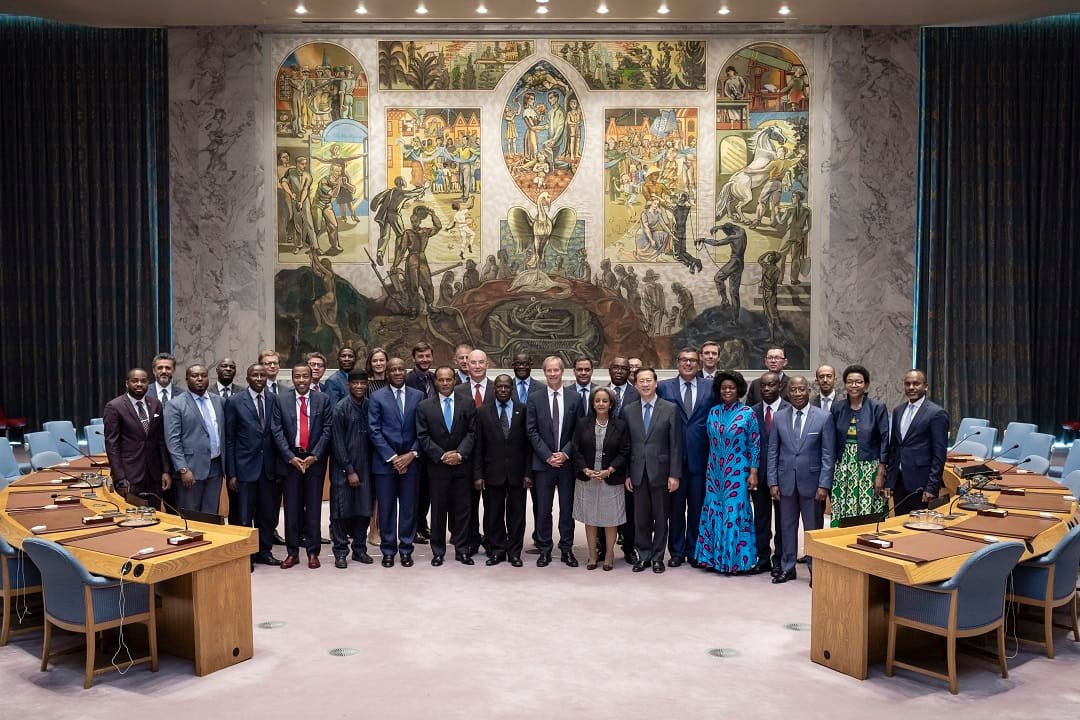Understanding the Complex Threat Landscape in Africa
Africa is currently witnessing a myriad of threats that contribute to instability and conflict across the continent. These threats are multifaceted and often intertwined, creating a complex security landscape that poses significant challenges for African nations. One of the most pressing issues is violent extremism, which has gained a foothold in various regions, including the Sahel and parts of East Africa. Groups such as Boko Haram, Al-Shabaab, and ISIS affiliates have exploited socio-economic grievances and political disenfranchisement, resulting in widespread violence and human suffering. The persistent rise of these extremist factions necessitates urgent and coordinated responses from both national governments and international partners.
Another critical factor creating vulnerabilities in Africa is the impact of climate change. The continent is particularly susceptible to environmental shifts, including droughts, floods, and rising temperatures, which exacerbate existing challenges like food insecurity and resource scarcity. The competition for diminishing resources often ignites communal tensions and fuels conflicts, particularly in regions where pastoral and agricultural communities overlap. As climate change continues to alter demographics and economic conditions, it becomes increasingly apparent that environmental resilience is a key component of any comprehensive security strategy.
Additionally, the challenges posed by weak state authority cannot be overlooked. Fragile political institutions and lack of effective governance contribute to power vacuums, further complicating security efforts. In many areas, state presence is minimal or ineffective, allowing non-state actors to thrive. This undermines development objectives and hinders long-term solutions to conflicts. Collectively, these factors create a precarious environment for stability and development in African nations. Addressing this complex threat landscape, therefore, requires robust and multi-dimensional strategies that effectively incorporate security, governance, and climate resilience as interconnected components of a durable peace. Comprehensive approaches are essential to foster sustainable security and promote development throughout the continent.
The Importance of Strengthening UN-AU Partnerships
The United Nations (UN) and the African Union (AU) share a fundamental responsibility in addressing the security challenges faced by African nations. The recent UN Security Council meeting underscored the urgent need for enhanced collaboration between these two entities. Strengthening this partnership is crucial for developing effective responses to the unique conflicts and security issues that arise within the continent. The essence of the appeal stems from the recognition that African countries are in the best position to devise and implement solutions to their problems—a concept articulated as “African solutions for African problems.”
This principle emphasizes the relevance of African ownership in conflict resolution processes, inviting greater involvement and leadership from regional actors. Empowering African nations to lead initiatives not only fosters resilience but also enhances the credibility of peacekeeping and diplomatic efforts. The UN Security Council plays a pivotal role in this framework, particularly through mechanisms such as ‘penholdership.’ This mechanism allows the UN member states to take responsibility for specific situations, ensuring that African issues are prioritized and addressed with the necessary urgency and context sensitivity.
Moreover, the effective orchestration of policies and strategies derived from this partnership can facilitate improved dialogue, cooperation, and mutual support between international and regional organizations. Fostering a more robust UN-AU partnership could also help in leveraging resources and expertise necessary to tackle complex security threats, such as terrorism and human rights violations. The engagement and participation of various stakeholders, including civil societies and member states, will be critical in reinforcing this collaboration, providing an inclusive framework for implementing sustainable solutions to Africa’s security challenges.
Prioritizing the Implementation of UN Resolution 2719
The need for effective implementation of UN Security Council Resolution 2719 (2023) is crucial to addressing Africa’s ongoing security challenges. This resolution offers a comprehensive framework aimed at securing funding for African Union (AU)-led peace operations, a necessary step in bolstering the continent’s security architecture. Despite its potential, the recognition of past challenges, particularly the unsuccessful utilization of these provisions for the mission in Somalia, highlights the complexities involved in translating resolutions into actionable strategies.
The mission in Somalia serves as a poignant case study illustrating the obstacles experienced in mobilizing the necessary resources and political support for AU-led operations. The difficulties faced during this mission were predominantly linked to insufficient funding, inadequate logistical support, and a lack of coherent strategy among member states to back AU initiatives decisively. Such historical precedents reinforce the urgency with which Resolution 2719 must be prioritized if substantial progress is to be achieved in peacebuilding efforts across Africa.
A key aspect of moving forward lies in fostering heightened political will among UN member states to wholeheartedly support the resolution. Enhanced collaboration and communication between AU and member nations are critical for ensuring that the resources and mandates required for effective peace operations are met timely and effectively. Establishing partnerships that extend beyond mere rhetoric to tangible support is essential for realizing the vision underlying Resolution 2719.
As African nations face increasingly complex security dynamics, driven by myriad factors such as terrorism, civil unrest, and transnational crime, the implementation of UN Security Council Resolution 2719 emerges as a top priority within Africa’s peace and security agenda. By consolidating financial commitments and enhancing operational support mechanisms, the continent can better position itself to address its security challenges head-on. Such efforts would represent a significant stride towards achieving sustainable peace and security in African nations.
Towards Sustainable Solutions: Addressing the Root Causes of Conflict
Africa’s security challenges are increasingly recognized as being deeply rooted in various systemic issues that require comprehensive approaches for resolution. Historical contexts, particularly the impact of colonialism, have left lasting legacies that continue to shape political landscapes and societal structures across the continent. The arbitrary borders established during colonial times disrupted social and ethnic cohesion, leading to conflicts that persist today. To effectively address these conflicts, it is vital to confront the historical injustices that contribute to grievances and disputes among communities.
Moreover, external interferences have often exacerbated tensions within different regions. Foreign interventions, driven by economic or political interests, have frequently undermined local governance and peacebuilding efforts. It is essential to promote a policy framework that emphasizes respect for national sovereignty and prioritizes support for indigenous solutions to conflicts, thereby fostering local ownership of peace processes.
Climate change is another significant factor contributing to conflict in Africa. As environmental degradation and resource scarcity escalate, competition for land and water resources intensifies. This situation is particularly dire in regions where livelihoods depend heavily on agriculture and pastoralism. Sustainable practices and resilience-building programs are critical in mitigating the environmental impacts that fuel conflict and displacement.
Human rights violations also play a central role in perpetuating conflicts. Addressing issues such as governance, rule of law, and equality is crucial. Promoting respect for human rights strengthens societal foundations and diminishes the likelihood of conflict escalation. A holistic approach that fosters social justice can significantly contribute to long-term stability.
Investment in consistent and sustainable funding for African Union-led peace operations is paramount. Enhanced financial backing will enable more effective intervention strategies, focusing on conflict prevention rather than reactive measures. There is a compelling need for strategic and collaborative efforts that prioritize sustainable conflict prevention to safeguard a peaceful future for Africa.




